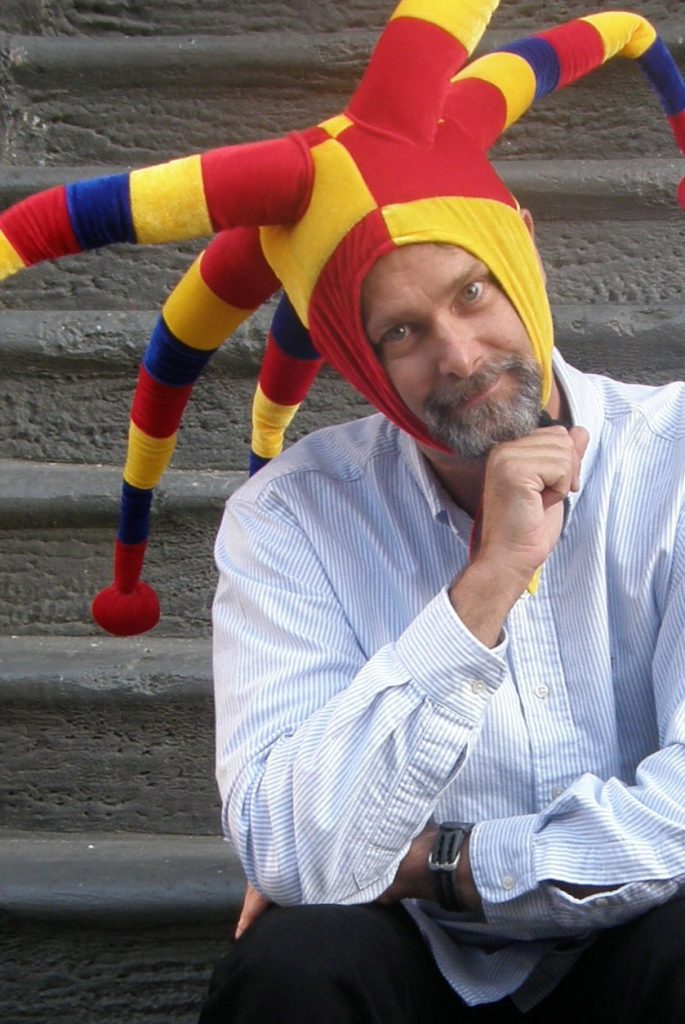
As a Midwest kid who grew up in a faith-heavy community, it almost felt a little sacrilege to read Christopher Moore’s Lamb. The story of Jesus’s teen years as told by his best friend, Biff, Lamb spins the tale of the Messiah’s early life, before the healing and the leading and the fishes and the whatnot. The main character, one held in such high regard by millions around the world, perceived to be inhuman, nearly untouchable, is instead shown as a typical adolescent, just a chosen one coming to terms with being chosen, gallivanting through the countryside with his foul-mouthed sidekick, exploring the customs of other religions while discovering his inexplicably divine gifts. There are broads and debaucherous activities, trouble and soul-searching tribulations. It might even be considered to be a complete mocking of the bestselling book in the history of publishing.
I laughed through every page.
On Writing and the Writing Process
Since 1992, the Ohio-born author has written fourteen books, each with their own wacky flair, with his latest, The Serpent of Venice, released earlier this year. I followed up my reading of Lamb with A Dirty Job, a tome about a single father who takes up the fight to save souls from being stolen by evil banshees of the Underworld. A stark contrast to my first read, it exemplified just how unpredictably creative Christopher Moore’s writing is. When I tweeted him to ask for a recommendation on my third read, he retweeted it out to his thirty-three million Twitter followers for their suggestions, and the answers were across the board, each respondent convinced that their pick was the best of the bunch. Not a bad place to be.
Q: When was that Aha! moment when you really felt like a writer?
A: After the publication of my third book. I’d read a quote from Saul Bellow once saying that 99% of all writers who publish a first book, never publish a second, and 99% of those, never publish a third. So I didn’t feel as if I’d made it until my third book came out.
Q: What was the first piece you had published?
A: Outside of school stuff, it was a short story called “The Cleanest Game in Town,” about a hustler who plays Death at Three-card Monte and wins. It appeared in a black men’s magazine in 1985, I think, and I’ve never seen a copy in print, but the check cleared.
Q: How did you get that first book sold?
A: I had a friend in the entertainment business who knew some agents. She sent it to them and a couple took me on. One sold it in Hollywood, the other sold it everywhere else.
Q: Tell me what the writing process is like for you. Environment, paper vs. laptop, music vs. silence? I was surprised to read that you stopped drinking when you started writing when most writers have some sort of writing vice.
A: I prefer it to be quiet and I write first thing in the morning if I can manage it. I will listen to music to drown out ambient noise (I live in the city and there’s always some kind of noise) but I can’t listen to anything with words while I’m writing. Usually jazz or classical. I like what used to be called “Chill” or “Acid Jazz” because it has a back-beat, but doesn’t demand you pay attention to it. I drink a lot of coffee. I used to always smoke when I wrote, too, but I gave that up about 15 years ago as well.
Q: With so many diverse books under your belt, is there any one character – or one storyline – that you really loved developing?
A: They all feel like hard work, but Sacré Bleu was in a way the most difficult and the one I loved most because I got to spend so much time looking at, studying, and making art, as well as living in Paris and having a legitimate “work reason” to go to museums. As far as I know, there had never been the myth of a muse explored in that way and it’s very gratifying to have pulled that off.
Q: Again, so diverse, when most writers tend to have an underlying connecting theme to their books. Where do you get your ideas?
A: Everywhere. Stuff that interests me. For years I looked at art and I eventually wrote Sacré Bleu. I’ve always loved working with language, so two of my books are inspired by Shakespeare’s plays. I’ve lived near the ocean most of my adult life and I like scuba diving so I wrote Fluke, about marine mammal biologists.
Q: What books (by other authors) have stayed with you over the years?
A: Steinbeck’s comic work, always. Some of the British humor writers — I’m reading a collection of the stories of Saki right now, P.G. Wodehouse. Shakespeare, of course. To Kill a Mockingbird. Green Eggs and Ham.
Q: What do you find is the most difficult part of being a writer?
A: Writing. The discipline of it.
Q: Though Serpent of Venice was just released, are you already working the next idea or taking a rest?
A: I’m about half-way through a sequel to my book on death, A Dirty Job. It’s due in the fall.
~Jennifer Heigl
*Photo credit: Christopher Moore
